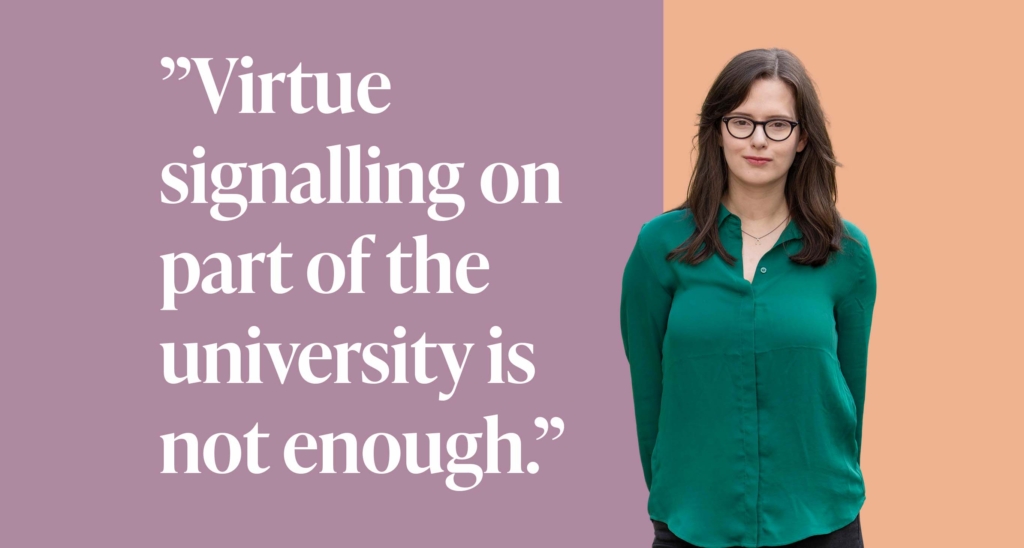This is a political column, the views presented are the writer’s own.
Does Lund University really do everything in its’ powers to be as inclusive as it claims to be? Lundagård’s education political columnist Kristina Cekanovic is not so sure.
I love my university friends and teachers, but sometimes they’re so obliviously, obviously privileged, that The Chair fades in comparison to Lund. Your social background means everything – globally, the most solid indication for matriculation in higher education is having parents who went to uni themselves. If you are from a working class background, like me, it’s a different game – you work twice as hard, but get half the support. After all, you don’t have anyone at home helping you, and that’s why it’s disgraceful that the university only talks the talk, not walks the walk, when it comes to widening participation.
Lund University (LU) is an elitist university – there’s nothing wrong with that, as long as the university realizes and values that excellence also comes from non-academic, “underprivileged” backgrounds. Widening participation is actually the profile issue for the academic year of 2021-2022. Unfortunately, there’s nothing yet that indicates academic life will become better for students that are directly affected. At the end of the day, if the university isn’t allocating enough money for all three cycles of higher education, and specifically financing its own student support centres, like The Academic Support Centre, The Supplemental Instruction Centre, The Accessibility Support Centre and General Student Counseling, what’s the point? Virtue signalling on part of the university is not enough.
But these aren’t just issues on the agenda for the Educational Boards at the university and its faculties – the entire university should be engaging with the issues of widening participation. Mentoring others should be an academic principle and expected from students, faculty and alumni alike. Toni Morrison said: “I tell my students, ’Just remember that your real job is that if you are free, you need to free somebody else. If you have some power, then your job is to empower somebody else.’” Now that I am “successful”, whatever that means, I make sure to mentor kids who grew up like me and students that just need basic peer support, someone senior that can say “It’s okay, I can show you!”. If nothing else, I’m happy to have that be my legacy in Lund.
I’m not convinced that the governing bodies of LU will ever mean business when it comes to widening participation, but no matter what, being a part of Lund University means you have power. Empowering others by letting go of power and privilege is not hard – explaining the game, playing with the competition – should be the duty of all students, faculty and alumni at LU.









